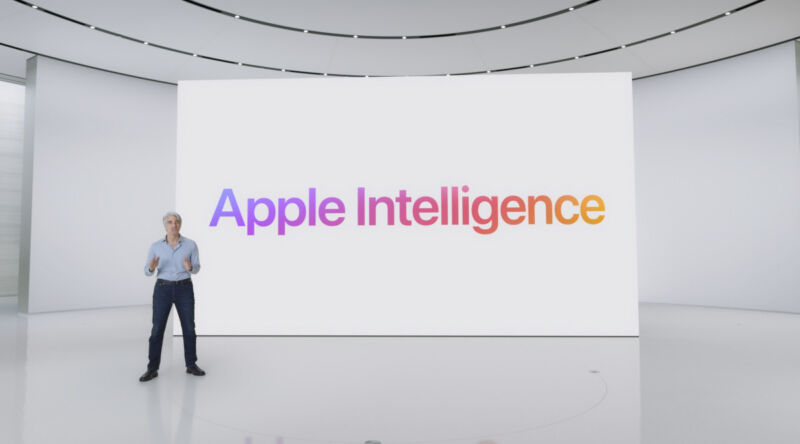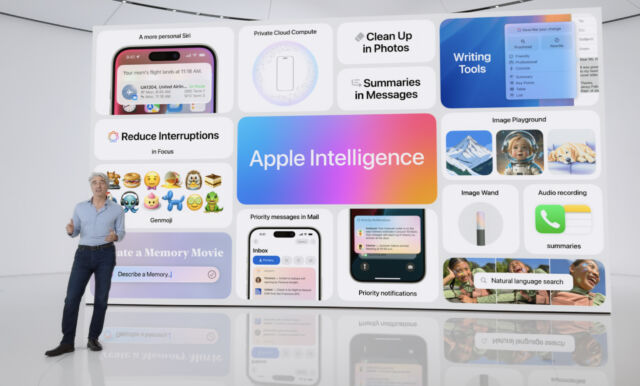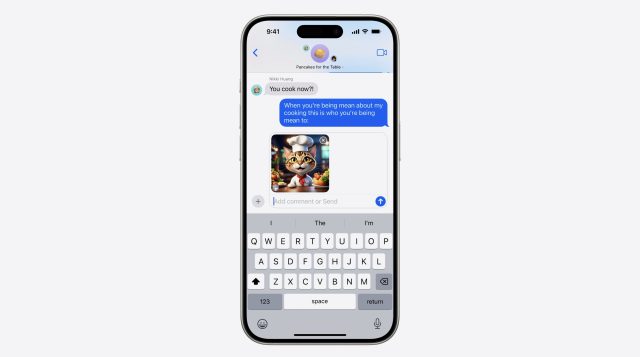
Apple
On Monday, Apple debuted “Apple Intelligence,” a new suite of AI-powered features for iOS 18, iPadOS 18, macOS Sequoia that include creating email summaries, generating images and emoji, and allowing Siri to take actions on your behalf. It’s achieved through a combination of on-device and in-cloud processing, and Apple says it focuses on privacy. Apple says that Apple Intelligence features will be widely available later this year and will be available as a beta test for developers this summer.
The announcements came during a livestream WWDC Keynote and a simultaneous event attended by press on Apple’s campus in Cupertino, California. In an introduction, Apple CEO Tim Cook said the company has been using machine learning for years, but the introduction of large language models (LLMs) presents new opportunities to elevate the capabilities of Apple products.
At last year’s WWDC, Apple avoided using the term “AI” completely, instead preferring terms like “machine learning” as Apple’s way of avoiding buzzy hype while integrating applications of AI into apps in useful ways. This year, Apple figured out a new way to largely avoid the abbreviation “AI” by coining “Apple Intelligence,” a catchall branding term that refers to a broad group of machine learning, LLM, and image generation technologies. By our count, the term “AI” only appeared once in the keynote: Near the end of the presentation, Apple executive Craig Federighi said, “It’s AI for the rest of us.”

The Apple Intelligence umbrella includes a range of features that require an iPhone 15 Pro, iPhone 15 Pro Max, iPad with M1 or later, or Mac with M1 or later on devices with Siri set to US English. The features include notification prioritization to minimize distractions, writing tools that can summarize text, change tone, or suggest edits, and the ability to generate personalized images for contacts. The system, through Siri, can also carry out tasks on the user’s behalf, such as retrieving files shared by a specific person or playing a podcast sent by a family member.
Apple says that privacy is a key priority in the implementation of Apple Intelligence. For some AI features, on-device processing means that personal data is not transmitted or processed in data centers. For complex requests that can’t run locally on a pocket-sized LLM, Apple has developed “private cloud compute,” which sends only relevant data to servers without retaining it. Apple claims this process is transparent and that experts can verify the server code to ensure privacy.
The keynote also highlighted updates to Siri, which sports a new logo and can now take actions on the user’s behalf. Apple Intelligence features have also been integrated into the Mail app, enabling email summaries and prioritization, as well as a new focus mode called “reduce interruptions.”

Apple also debuted a new feature called Genmoji, which allows users to create personalized emoji by typing a description. The system generates a custom Genmoji based on the user’s input, along with additional options. Alternately, users can create Genmoji representations of friends and family members using their photos. Apple says that generated Genmoji are seamlessly integrated into messages and can be shared as stickers, or used as reactions in Tapbacks, similar to traditional emoji.
It also debuted Image Playground for generating images and announced a new ChatGPT integration into iOS.
This is part of a breaking news story and will be updated.




















+ There are no comments
Add yours